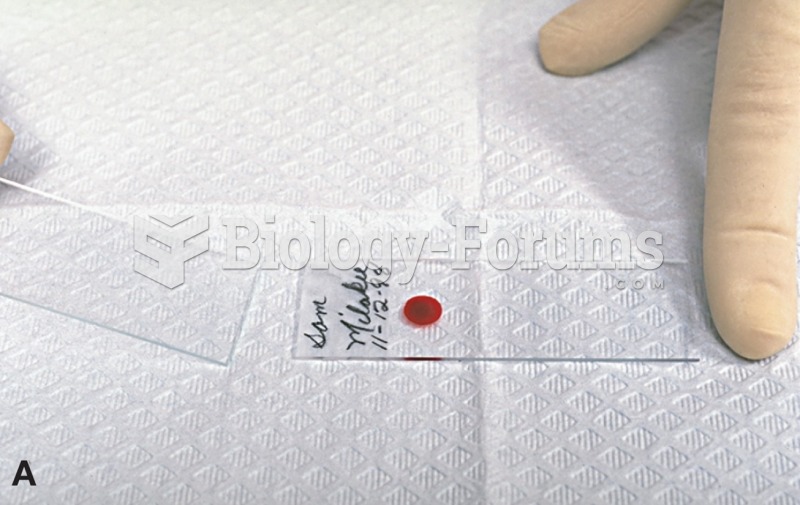|
|
|
A serious new warning has been established for pregnant women against taking ACE inhibitors during pregnancy. In the study, the risk of major birth defects in children whose mothers took ACE inhibitors during the first trimester was nearly three times higher than in children whose mothers didn't take ACE inhibitors. Physicians can prescribe alternative medications for pregnant women who have symptoms of high blood pressure.
In the United States, there is a birth every 8 seconds, according to the U.S. Census Bureau's Population Clock.
Side effects from substance abuse include nausea, dehydration, reduced productivitiy, and dependence. Though these effects usually worsen over time, the constant need for the substance often overcomes rational thinking.
The calories found in one piece of cherry cheesecake could light a 60-watt light bulb for 1.5 hours.
Excessive alcohol use costs the country approximately $235 billion every year.







